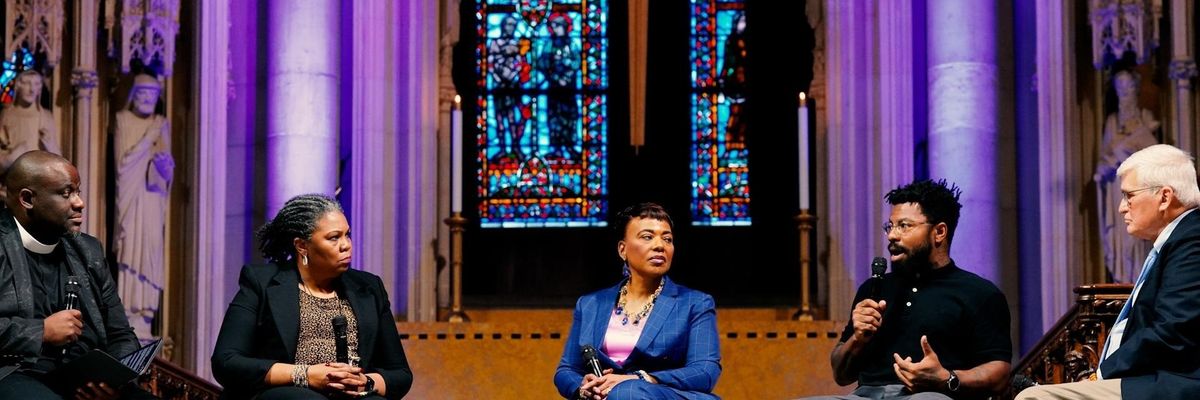Fifty-five years ago this week, Martin Luther King, Jr. took to the podium at Riverside Church in New York City to condemn the United States’ war in Vietnam — and to name his government “the greatest purveyor of violence in the world.”
King’s speech denounced the violence the conflict was inflicting on the Vietnamese people, along with the deprivation it exacerbated on America’s poor, and called for a fundamental realignment of U.S. values at home and abroad.
On Saturday, April 2, a group of scholars, activists, and faith leaders, including MLK’s daughter Dr. Bernice King, gathered at that same church to read King’s speech and to reflect on its relevance in a world once again under the shadow of war.
Drawing attention to the overlapping global crises of our time, King reiterated her father’s call for a “revolution of values.”
“We are at a very critical point in this world,” she said. “We are almost at the point of total destruction and we don't know it.” The answer to this, she charged, lies in her father’s plea: that we “make the necessary shift from a thing-oriented society to a person-oriented society.”
Her co-panelists, including Pastor Mike McBride of the LIVE FREE campaign, Andrew Bacevich, president of the Quincy Institute for Responsible Statecraft, Rev. Traci Blackmon of the United Church of Christ, and Philip Agnew, co-founder of Dream Defenders, drew their own connections between the elder King’s prescient speech and the challenges facing the United States and world today.
Agnew emphasized the importance of connecting domestic struggles for justice with those abroad; Blackmon, while praising the international outcry against Russia’s invasion of Ukraine, questioned the lack of similar reckoning for numerous past and ongoing U.S. wars around the world.
Bacevich, himself a veteran of the war in Vietnam, sounded a sobering note on the impact of King’s message almost six decades later.
“I fear that our nation, our countrymen are still not prepared to welcome that revolution of values that Dr. King called for,” he said. “His message was true, his call was correct, but I think we still got a long way to go to hear it and therefore, to act upon it.”
Watch video of the panel starting at 1:40:00 below:
















